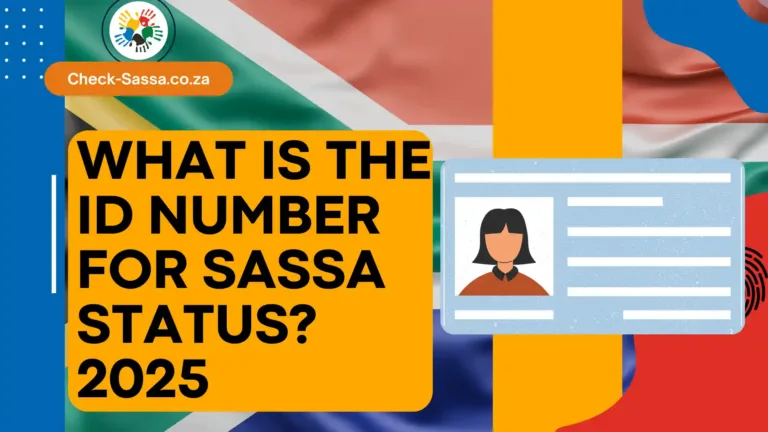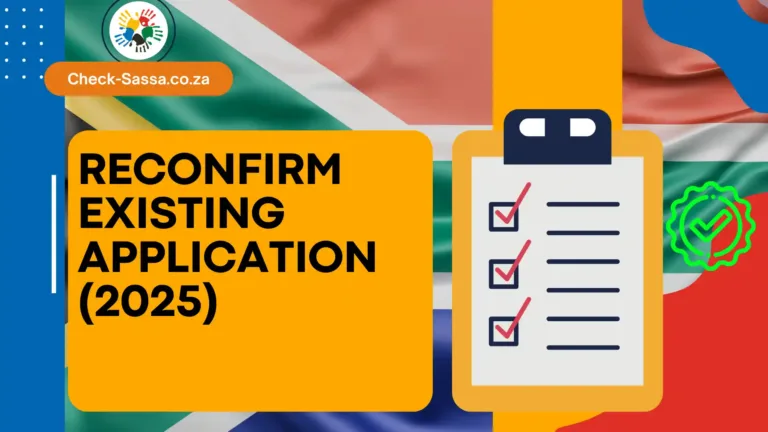How to Claim SASSA Funeral Benefits 2025

The South African Social Security Agency (SASSA) offers a range of financial assistance programs, one of which is the Funeral Benefit. This benefit is designed to provide a financial safety net for those who have lost a loved one, easing the financial burden associated with funeral costs. In this comprehensive guide, we will walk you through the entire process of claiming SASSA Funeral Benefits, covering all the essential details, requirements, and steps to ensure a smooth application process.
What are SASSA Funeral Benefits?
SASSA Funeral Benefits are part of the broader Social Assistance Program managed by SASSA, aimed at helping qualifying individuals cover funeral expenses. These benefits can be accessed by those who are registered for social grants and have experienced the death of a family member. The benefit is available to assist in covering the costs of burying a loved one, ensuring that the deceased is laid to rest with dignity.
Eligibility Criteria for SASSA Funeral Benefits
To qualify for the SASSA Funeral Benefit, applicants must meet specific eligibility requirements. These criteria ensure that only those in genuine need of assistance receive the benefit. Below are the key requirements for eligibility:
1. Must Be a Registered Social Grant Recipient
Only individuals who are receiving one of the social grants managed by SASSA (such as the Child Support Grant, Old Age Grant, or Disability Grant) are eligible for funeral benefits. This ensures that the applicant is already part of the social assistance system.
2. The Deceased Must Be a Family Member
The funeral benefit can only be claimed for a family member’s funeral. This includes the applicant’s spouse, child, or immediate family members. The applicant must provide the relevant documentation to prove their relationship to the deceased.
3. Death Must Be Verified
A death certificate or other official documents verifying the death of the family member must be provided. This is critical in ensuring the accuracy and legitimacy of the claim.
4. Income Assessment
While the primary goal is to assist low-income individuals, SASSA may require an assessment of the applicant’s household income to ensure they meet the income threshold for the grant. This threshold may vary depending on the type of grant the applicant is receiving.
Documents Required for SASSA Funeral Benefit Claims
To streamline the application process, applicants must ensure they have all the necessary documents in order. Below is a list of required documentation:
1. Death Certificate
A certified copy of the death certificate of the deceased is crucial to verify the death.
2. Identity Documents
Both the applicant’s and the deceased’s identity documents must be presented. This includes the South African ID card or passport for South African citizens or residents.
3. Proof of Relationship
Applicants may be required to submit additional documents that demonstrate their relationship to the deceased, such as marriage certificates, birth certificates, or affidavits.
4. Proof of Social Grant
Evidence of the applicant’s active social grant is necessary to confirm their eligibility. This may include recent proof of payment or a SASSA payment slip.
5. Bank Details
Applicants must provide their bank account details for the deposit of the funeral benefits. A recent bank statement or letter from the bank confirming the account details may be required.
How to Claim SASSA Funeral Benefits
The process of claiming the SASSA Funeral Benefit is relatively straightforward if you follow the correct steps. Below is a step-by-step guide to help you navigate the claim process.
Step 1: Visit the Nearest SASSA Office
To initiate the claim, you must visit your local SASSA office. You will need to go to the office in the area where you live, as they are responsible for processing funeral benefit claims for your region.
Step 2: Complete the Funeral Benefit Application Form
At the SASSA office, you will be required to fill out an application form for the funeral benefit. This form requests personal information about the deceased and the applicant, including your ID number, the deceased’s ID, and details of the funeral arrangements.
Step 3: Submit the Required Documents
After completing the application form, submit all the required documents. Ensure that the death certificate, identity documents, proof of relationship, and proof of your social grant are included in your submission. Incomplete applications may result in delays or rejections.
Step 4: Await Processing
After submitting your application, SASSA will process your claim. This may take several days to a few weeks, depending on the volume of applications being processed and the completeness of your submission. If SASSA requires additional information, they may contact you for further clarification.
Step 5: Receive the Benefit Payment
Once your application has been approved, the funeral benefit will be deposited into your bank account. The amount paid is typically a fixed sum, which is determined by SASSA based on their assessment of the application.
How Much Is the SASSA Funeral Benefit?
The amount of the SASSA Funeral Benefit is fixed and may vary depending on your eligibility, the social grant you receive, and other factors. Generally, the payment is intended to cover basic funeral costs, though it may not cover the full expense of an elaborate funeral.
It’s important to note that the payment is not meant to cover the entire cost of a funeral but is rather a contribution toward the funeral expenses. Applicants should plan for other funeral costs, such as catering, transport, and burial fees, which are typically not covered by the grant.
Common Challenges in Claiming the SASSA Funeral Benefit
While the SASSA Funeral Benefit provides vital financial support, applicants often face several challenges during the claim process. Here are a few common issues to be aware of:
1. Delays in Processing
Processing times can vary, and delays may occur if there are discrepancies in the documents submitted or if additional verification is required.
2. Incomplete Documentation
Missing or incorrect documentation can lead to delays or rejection of the claim. It is essential to double-check that all required documents are submitted.
3. Income Eligibility Issues
If the household income exceeds the threshold for the funeral benefit, the application may be denied. In such cases, applicants may need to explore other financial options to assist with funeral costs.
Alternatives to SASSA Funeral Benefits
If you are unable to qualify for SASSA Funeral Benefits, there are other options available to help with funeral expenses:
1. Funeral Insurance
Many South Africans invest in funeral insurance to cover the cost of funeral expenses. This can provide additional financial security during a difficult time.
2. Family and Community Support
In cases where financial assistance from SASSA is unavailable, families often turn to their communities or extended family members for support.
3. Private Funeral Benefit Schemes
Private companies may also offer funeral benefit schemes that cater to different needs and financial capabilities.
Conclusion
Claiming SASSA Funeral Benefits can provide much-needed financial assistance during one of life’s most challenging times. By following the steps outlined in this guide and ensuring you meet all the eligibility requirements, you can ease the burden of funeral costs and ensure that your loved one is laid to rest with dignity. Remember to gather all necessary documentation, apply through the correct channels, and remain patient during the processing period to ensure a successful claim.

I’m Luan Arno, the owner of Check-SASSA.co.za, where I help South Africans navigate SASSA services. As a father of two living in Johannesburg, I’m passionate about making essential information accessible to those in need. With a background in community service and digital communications, I aim to simplify the process of checking benefits. When I’m not working, I love exploring our beautiful country with my family. Thank you for visiting Check-SASSA!






